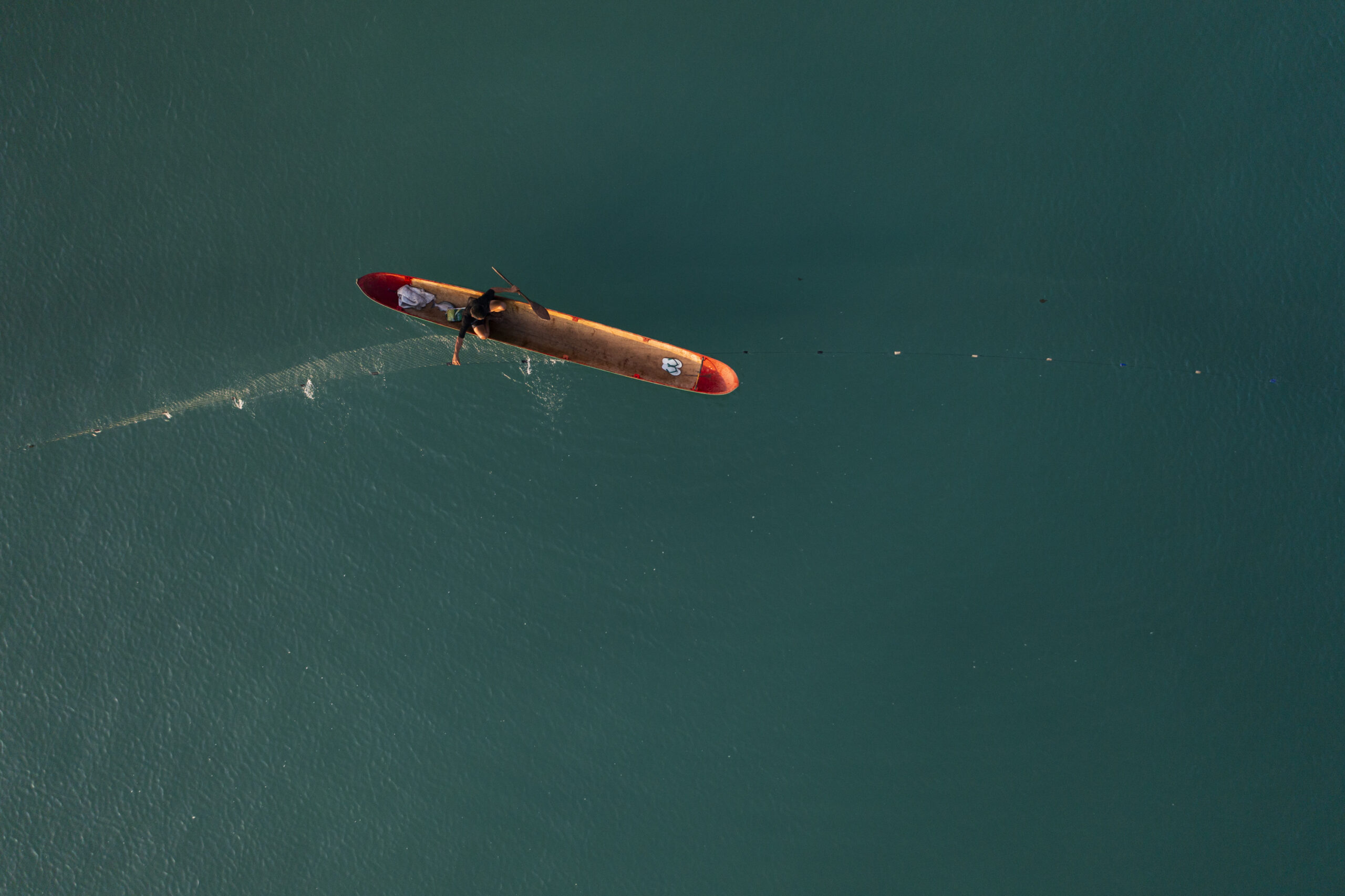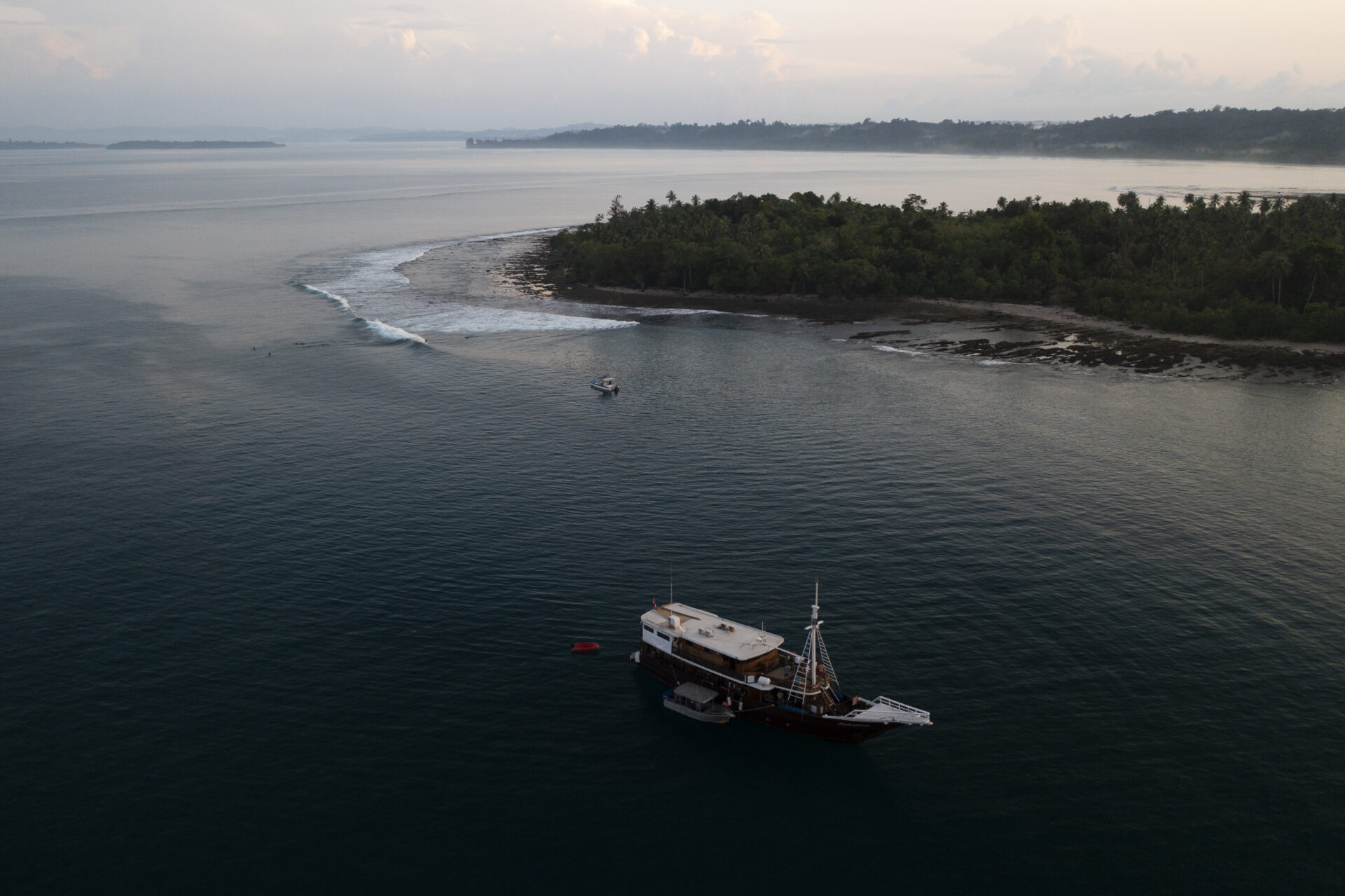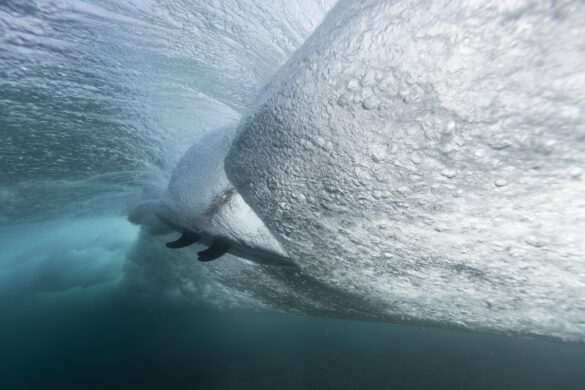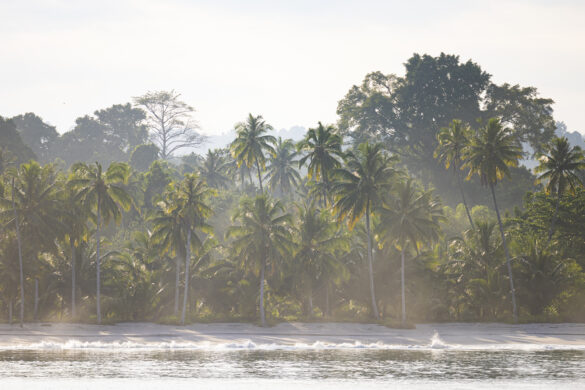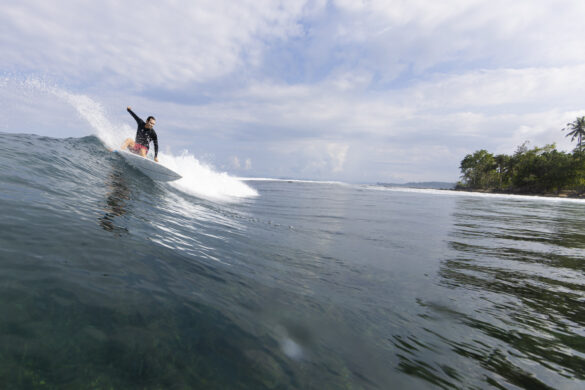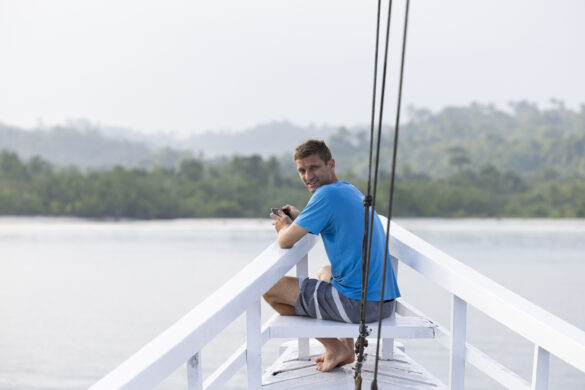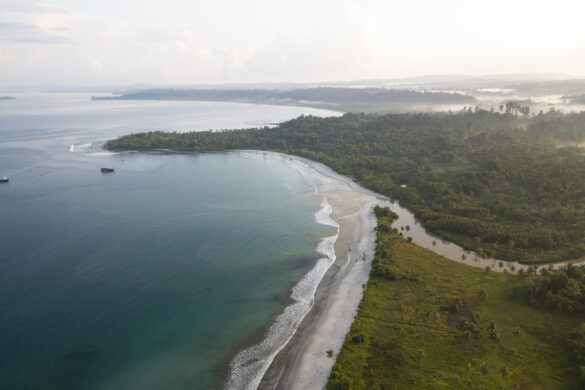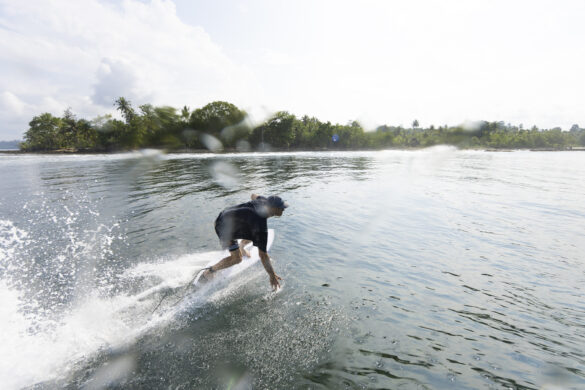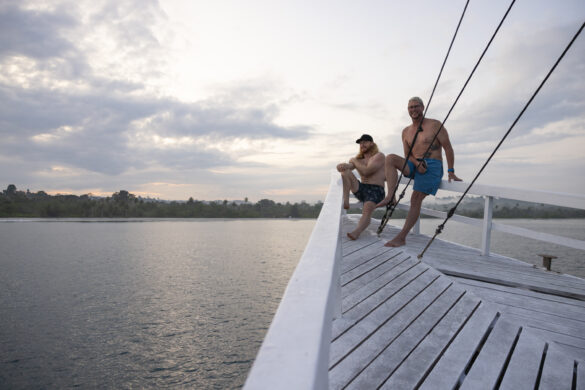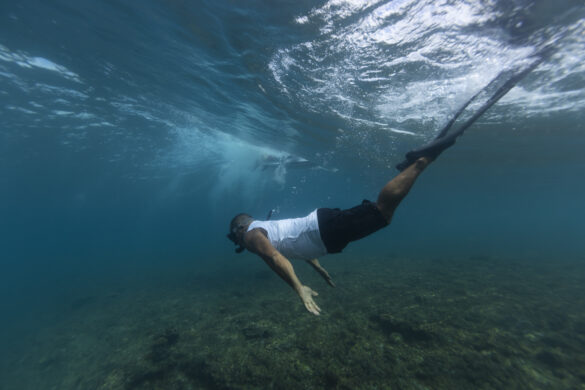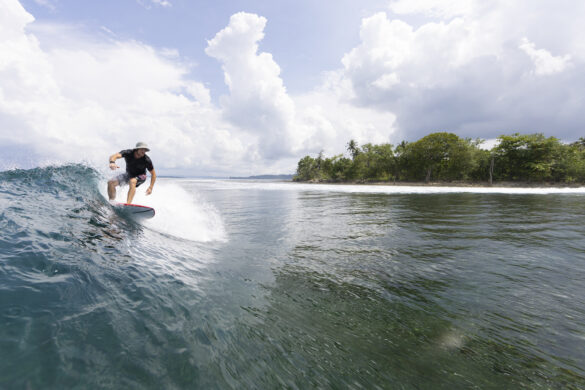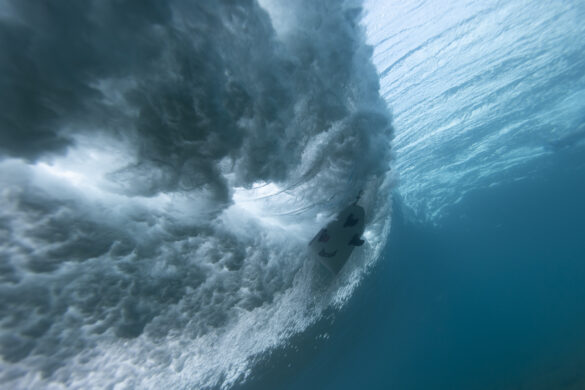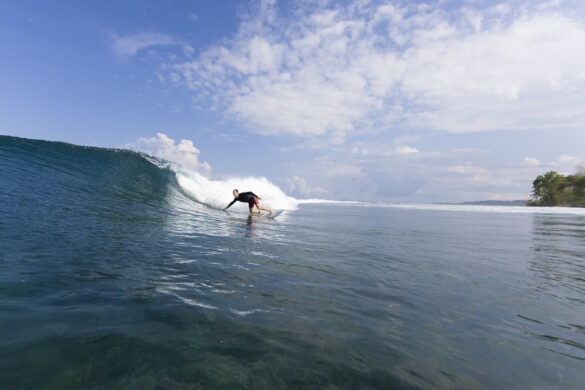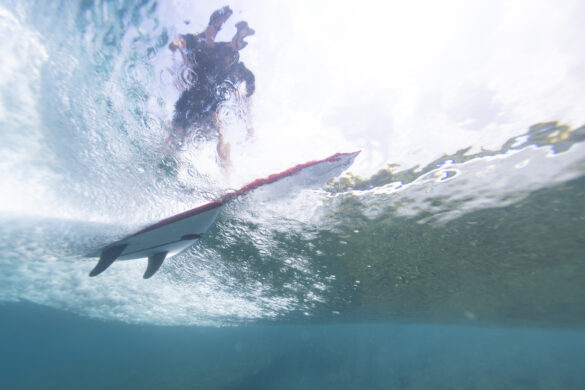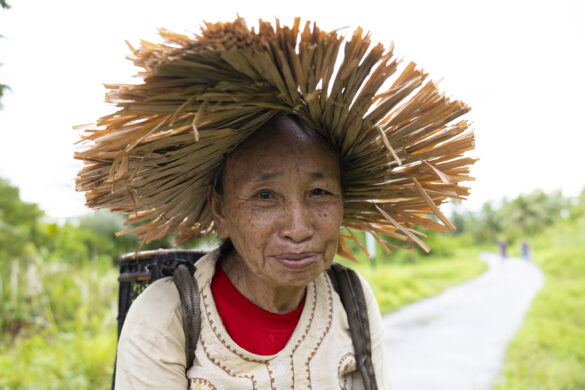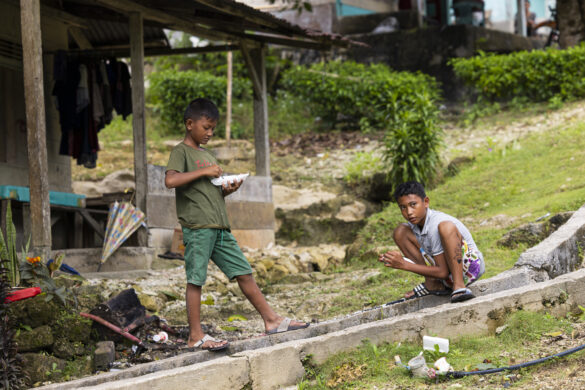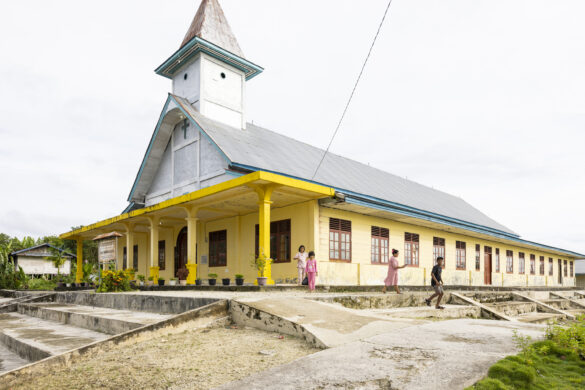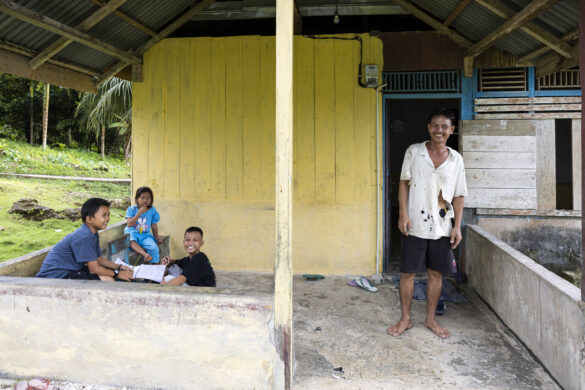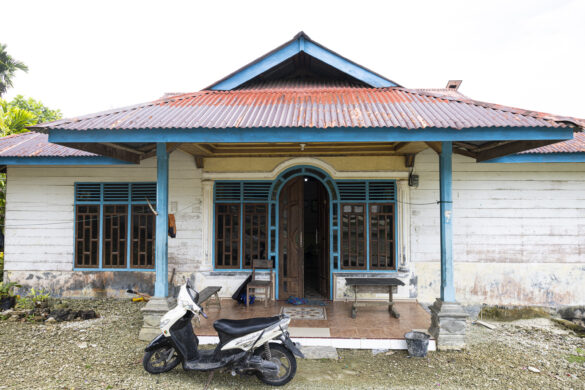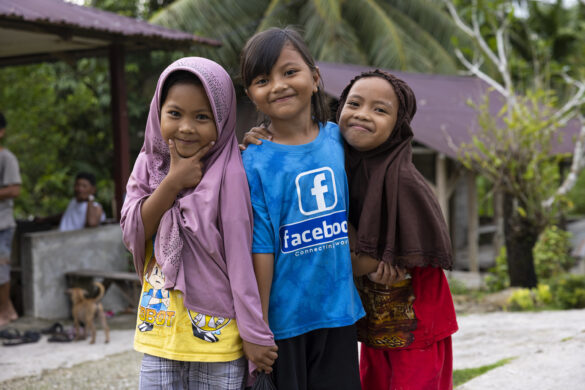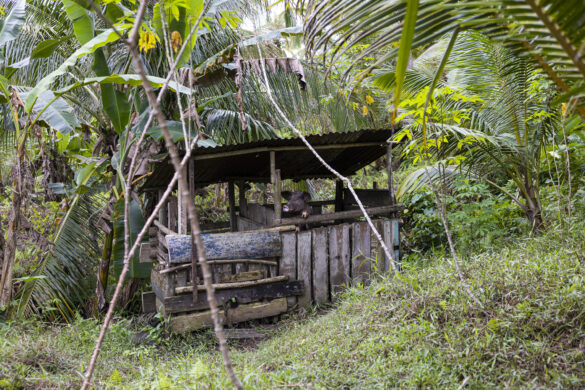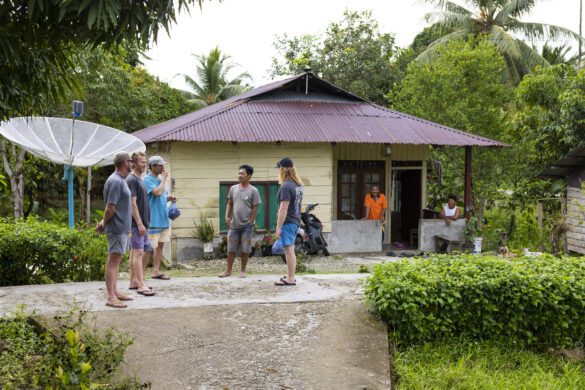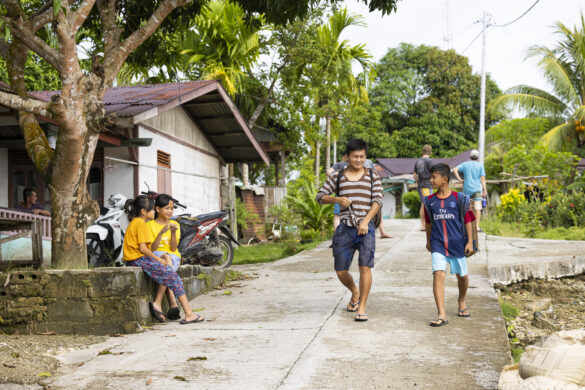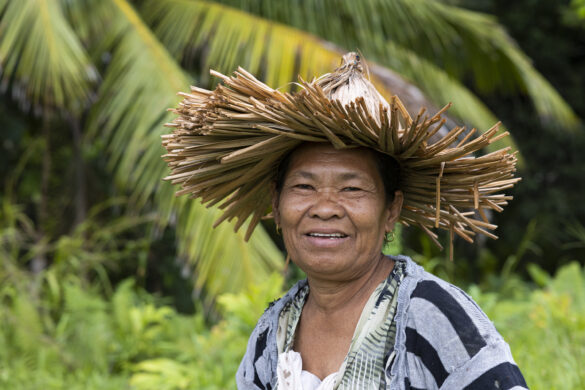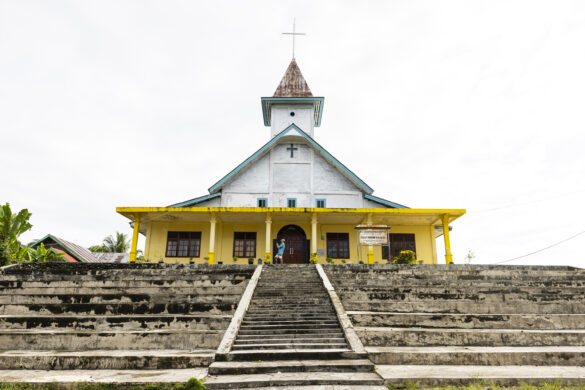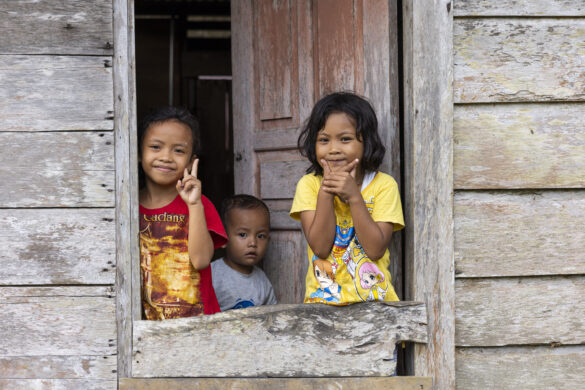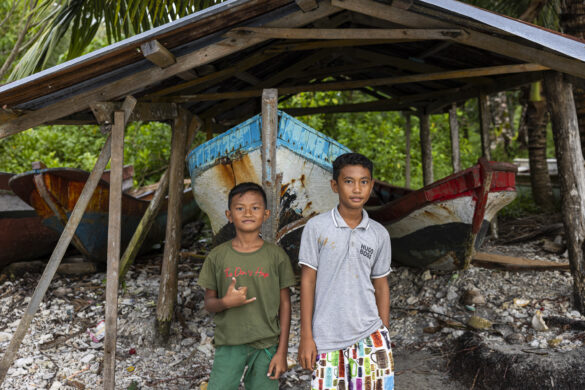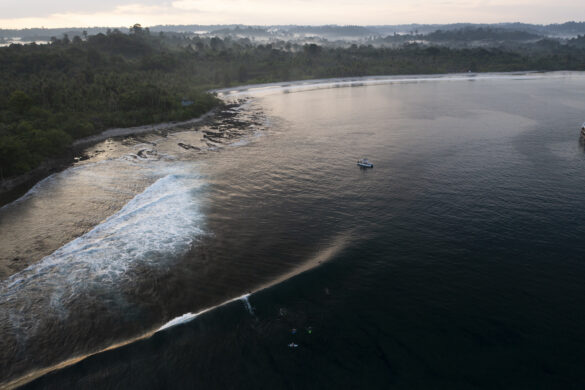Roxies is a fun little righthander in a picturesque bay that is filled with turtles, occasionally crocodiles and, at times, a boatload of Brazilians (until our skipper evicted them). Going right with just our crew out was a welcome change of pace after two days at busy Macaronis.
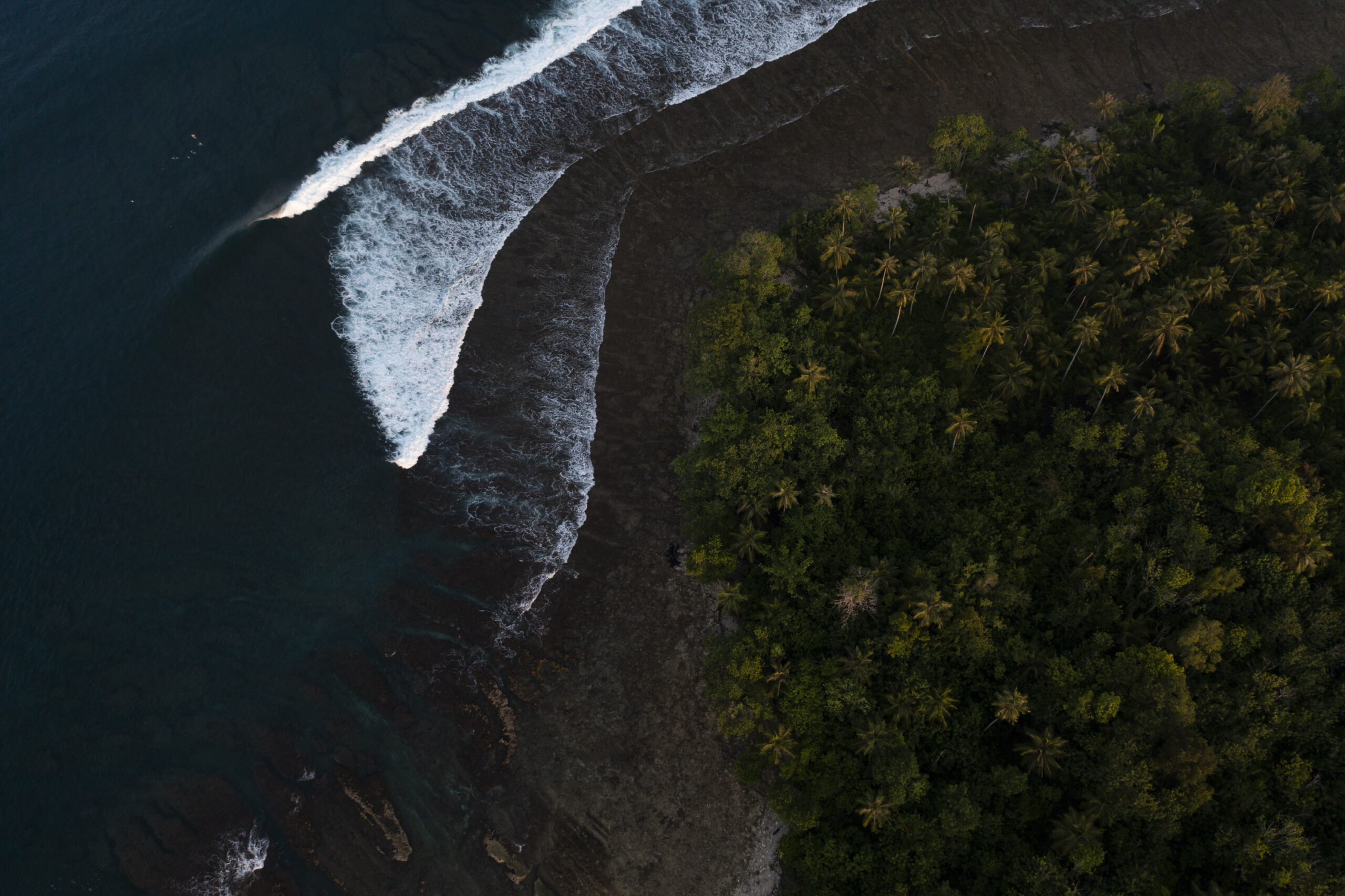
Like magic we wake to the anchor dropping off the bow of the Mahogany in the inky darkness of early morning. The dawn light offers glimpses of a new bay complete with a righthand reef reeling away in the distance.
We’re readying ourselves to hit the water when the boat carrying the dreaded Brazilian wolfpack arrives. They’re still hunting for anchorage as a stream of surfers spill into the water like rats abandoning a sinking ship. Our hearts drop. The swell and tempo of the sets is not enough to cater for 20 surfers. Scuzz makes contact with their captain and it is agreed they have two hours before changeover.
That proves hard to enforce, but the captains do their job … with a lot of encouragement from our crew who soon arrive in the lineup. And then we have it to ourselves.
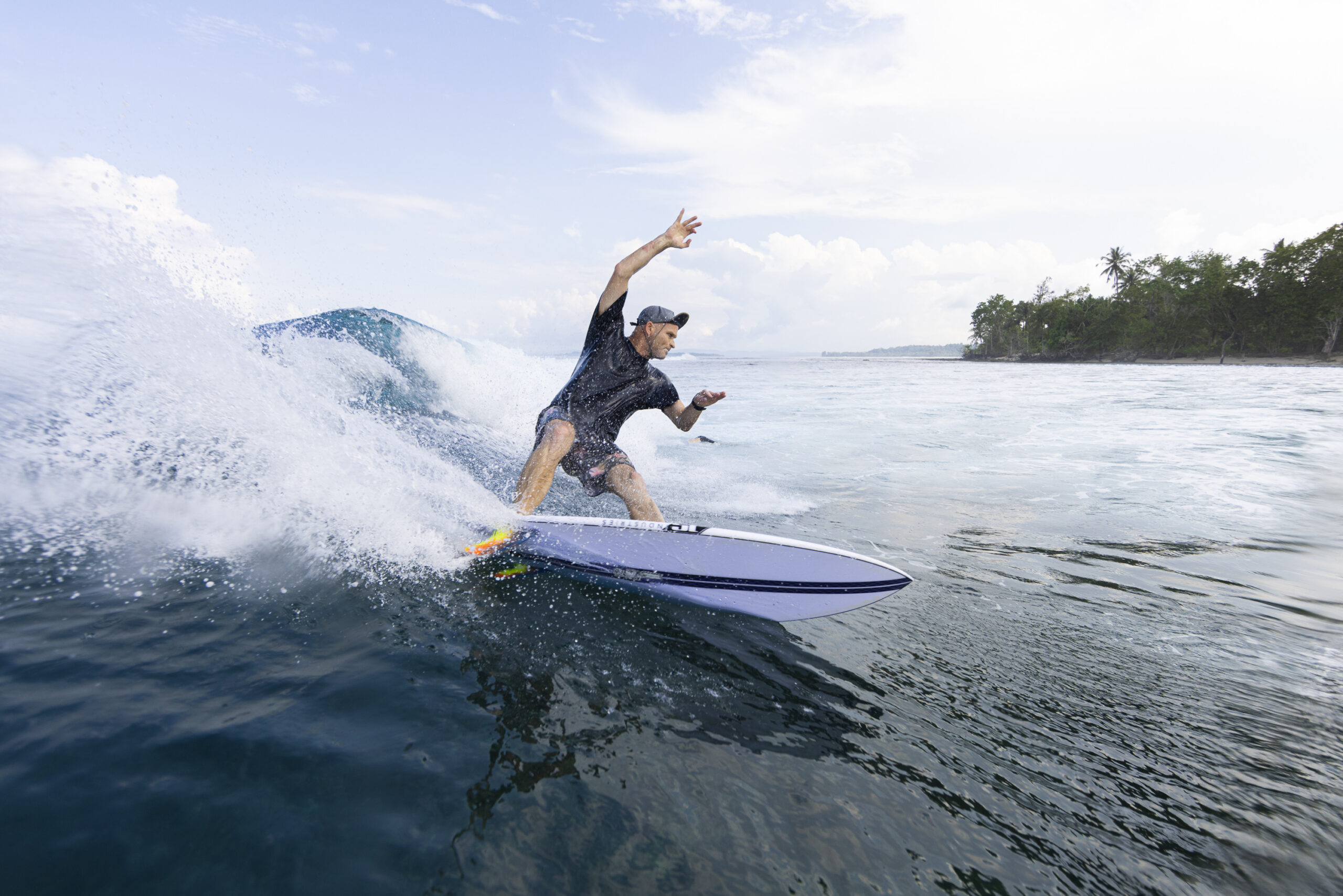
Getting a reef break like this to just your crew is pretty cool. The waves are in the 1-3 foot range and heaps of fun. Even the smaller ones have a bit of pep to them. Beneath the surface green sea turtles glide around the reef, occasionally popping their heads above the surface to see what all the hooting and banter is about. We’re all a bit relieved when we can clearly see that they are not the crocs that have been seen here.
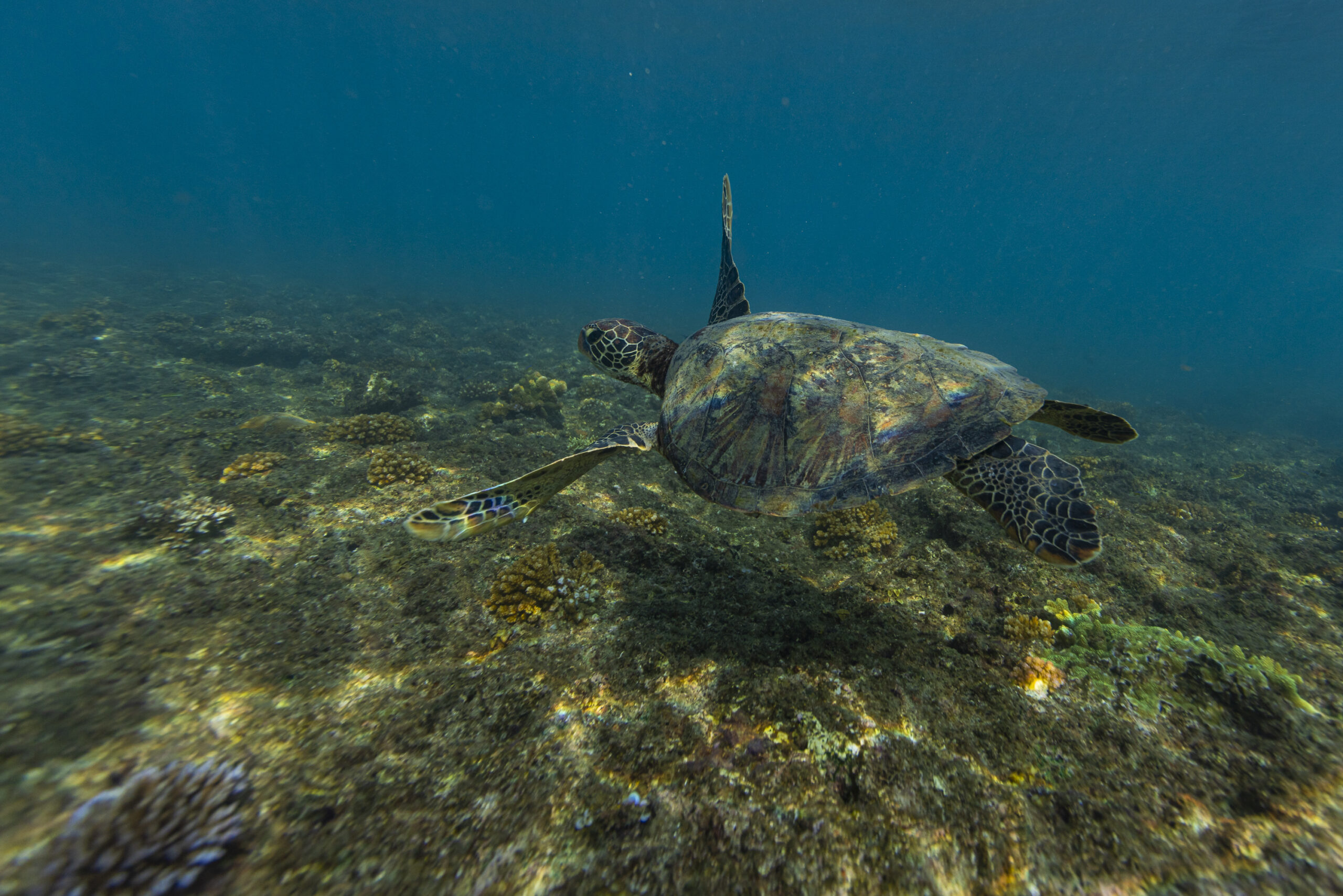
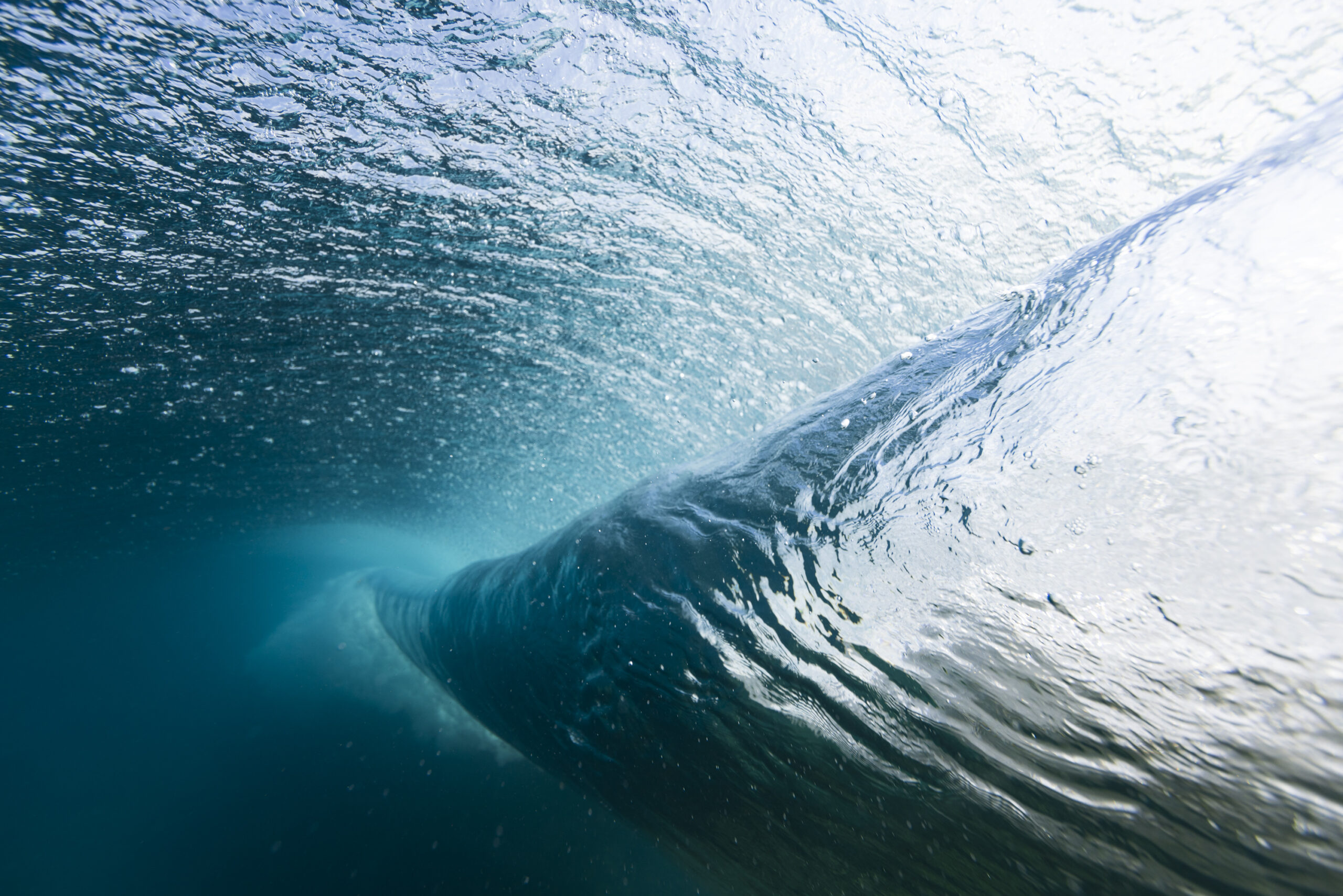
The swell appears to be dying and so a few of the lads go for a dive in the bay. By lunch time we’re watching storm clouds gather. Eventually a tropical rainstorm collapses directly over our heads and a slight onshore wind ruins the lineup.
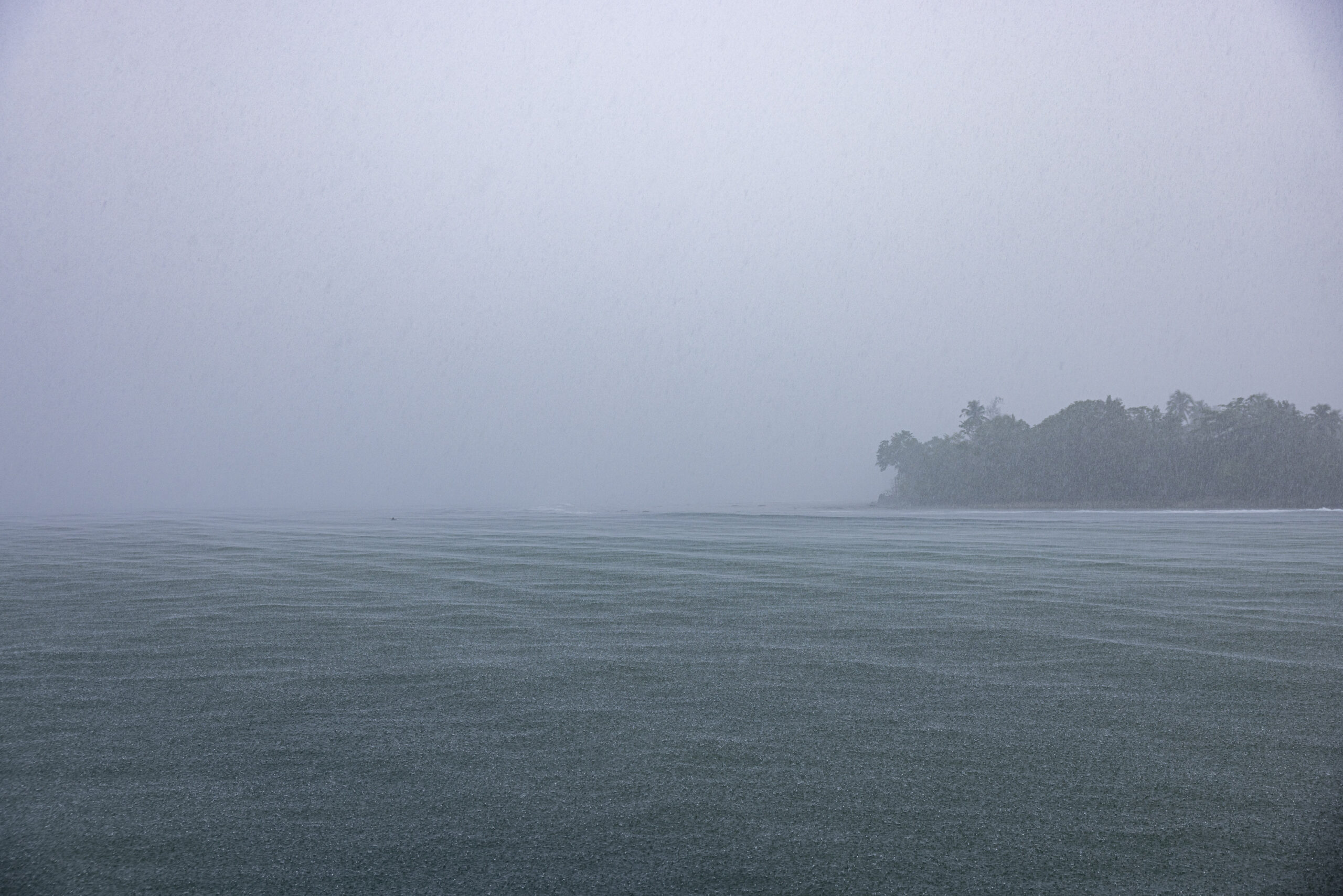
Somehow, as if by magic, Scuzz appears and reveals there could be a window of offshore coming if we’re quick. He’s the quickest and paddles into the lineup as the rest of us shake our heads. It looks terrible and onshore and with thunder booming around us. Then, just as Scuzz reaches the lineup, through the thick rain, we see a set wave like no others all day. Scuzz catches it and, yes, it is now offshore. He belts it to the inside and repeats the whole thing three more times before Kent and I decide to join him.
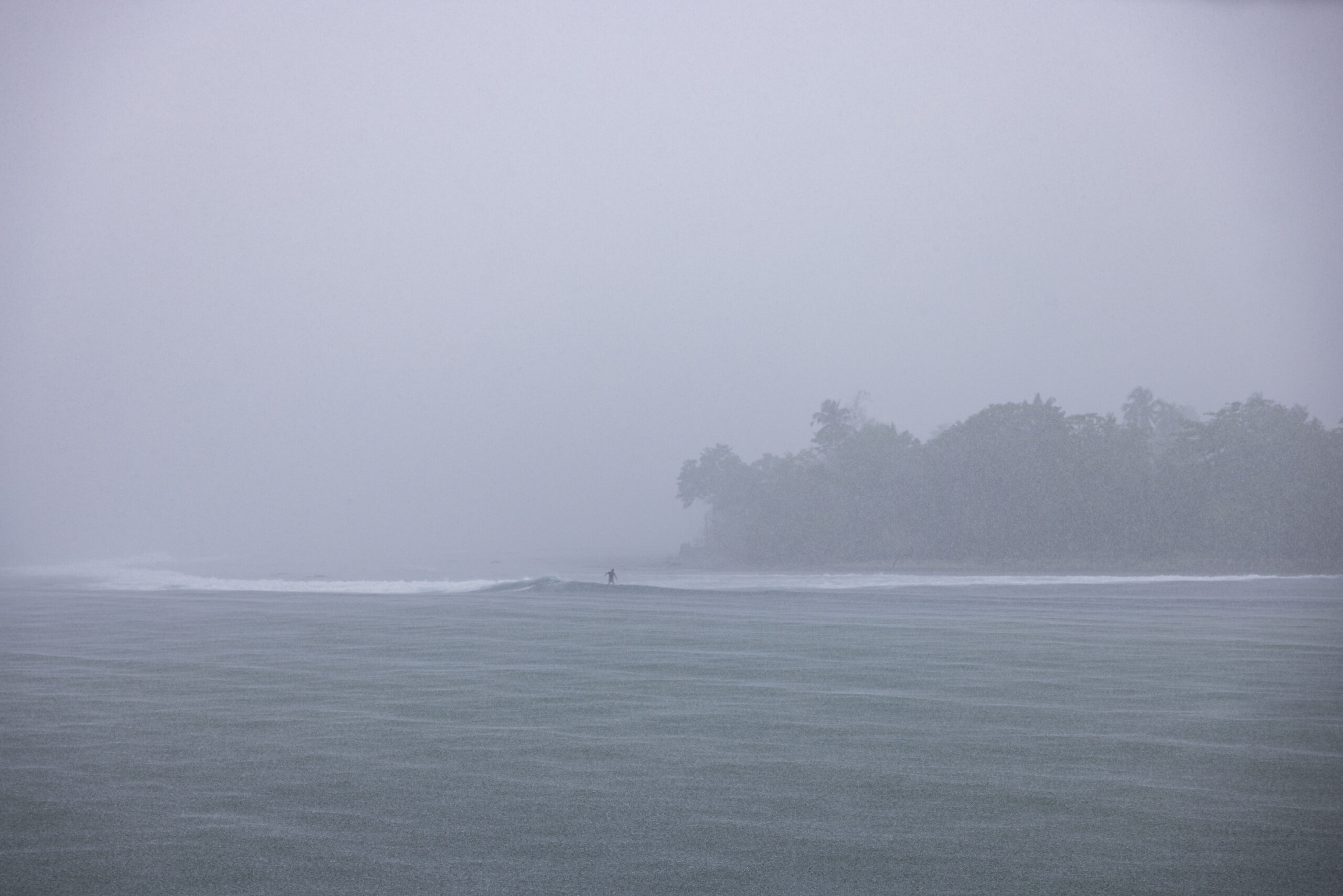
We reach the lineup as Scuzz catches a bomb. He waves goodbye to us as he surfs it to the inside and then starts the paddle back to the Hog. Kent and I look at each other and congratulate ourselves on having the lineup to ourselves.
We wait where we think Scuzz caught his waves. And we wait, and we wait. It goes onshore again. The rain pelts down. Thick drops. We grow impatient and catch a few insiders but they’re nothing like Scuzz’s waves. We wait.
A log floats past us. The water is no longer warm, but very cold and murky, like pale chocolate. It takes us about half-an-hour longer than it should have to realise that Scuzz’s waves are no longer coming through. And, that we’re basically surfing in whatever is coming out of the local river.
It’s a hasty paddle in the rain, hoping the logs are just logs and the dirty water stays out of our mouths the whole way.
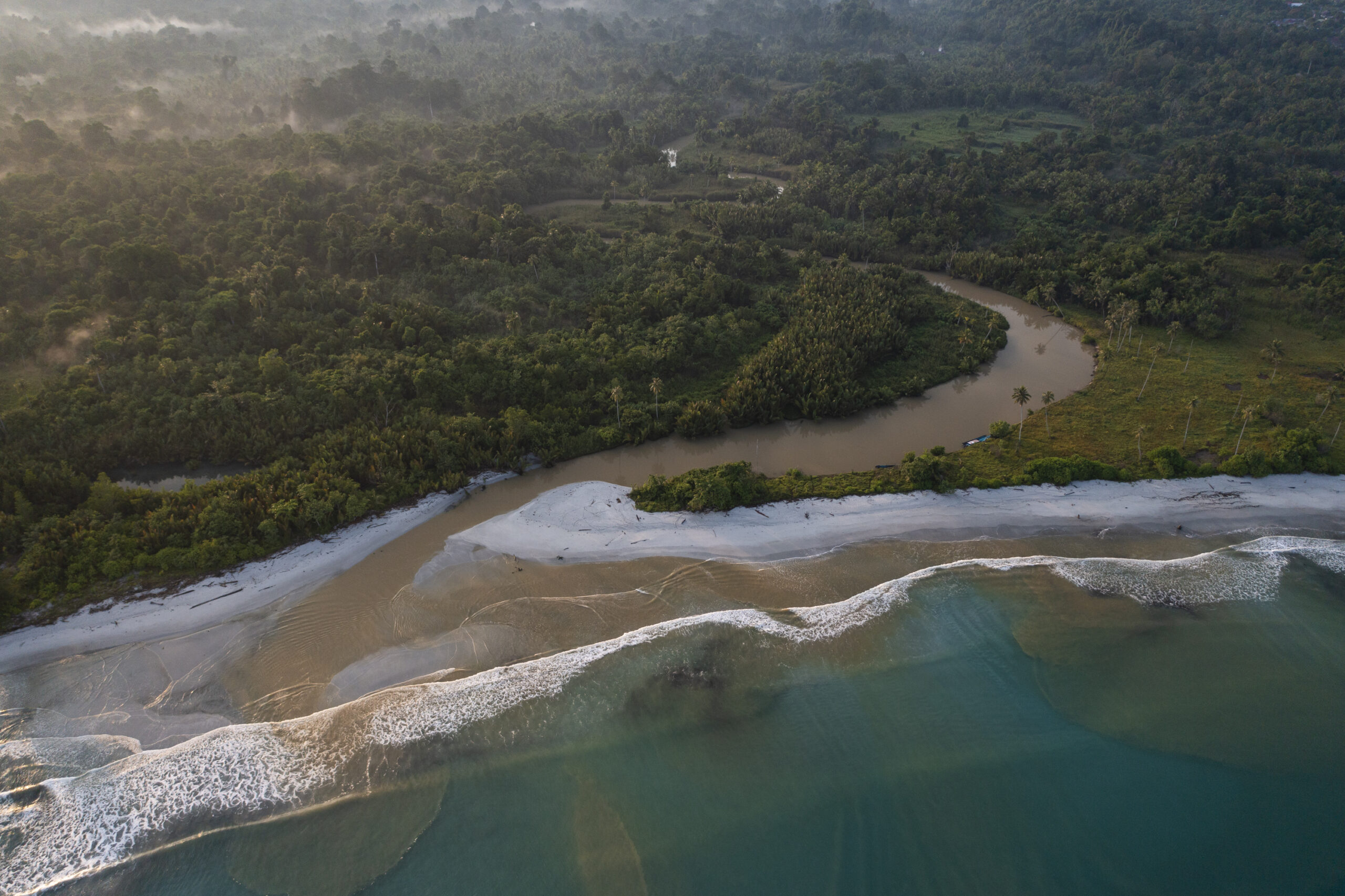
By the time the rain stops a bunch of us have decided to step on land for the first time in five days, and check out the village of Malakopa. Grant, Russ, Dazza, Tom and I head to shore. Malakopa Village is in a very remote part of the Mentawai Islands, yet the tentacled reach of Western religion still made its way here early on with the village boasting a catholic church. It wasn’t clear to us if this was the dominant religion of the village, or, if like the majority of Mentawai people, they followed an animistic belief system known as Sikerei, which is centered around ancestral and natural spirits.
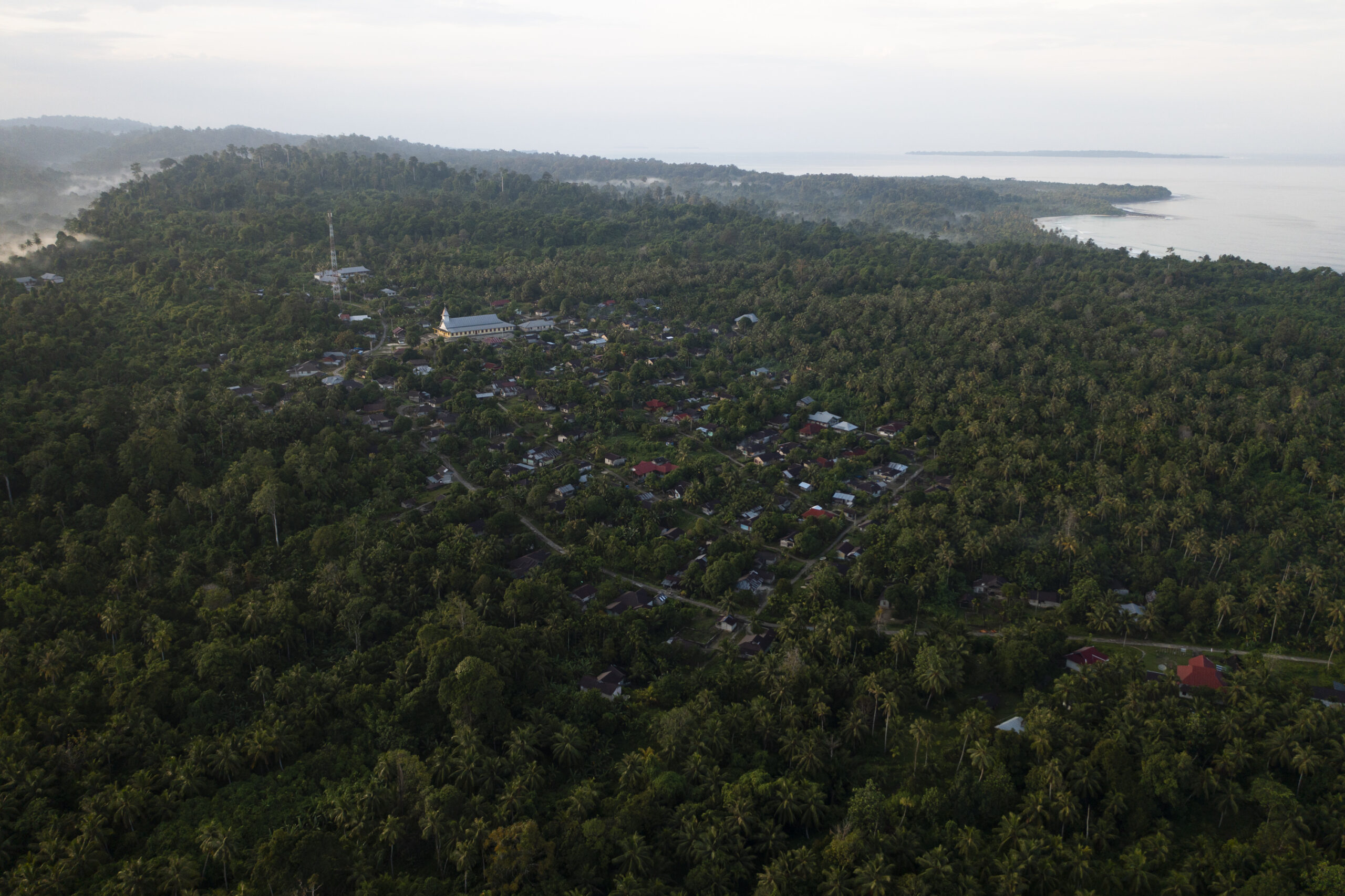
What was clear was that for the 200-300 people who call Malakopa home, the presence of five bule, or foreigners, walking through their village was worth coming outside to see. It was also clear that our limited understanding of Bahasa meant most conversations were going to resemble a game of charades.
We learnt the name of a bunch of the village kids and bought five bags of rambutan fruit, which is similar to a lychee, but native to Indonesia. The shopkeeper didn’t have change for 50,000 IDR … about five dollars in New Zealand money. And so she insisted we take all five bags.
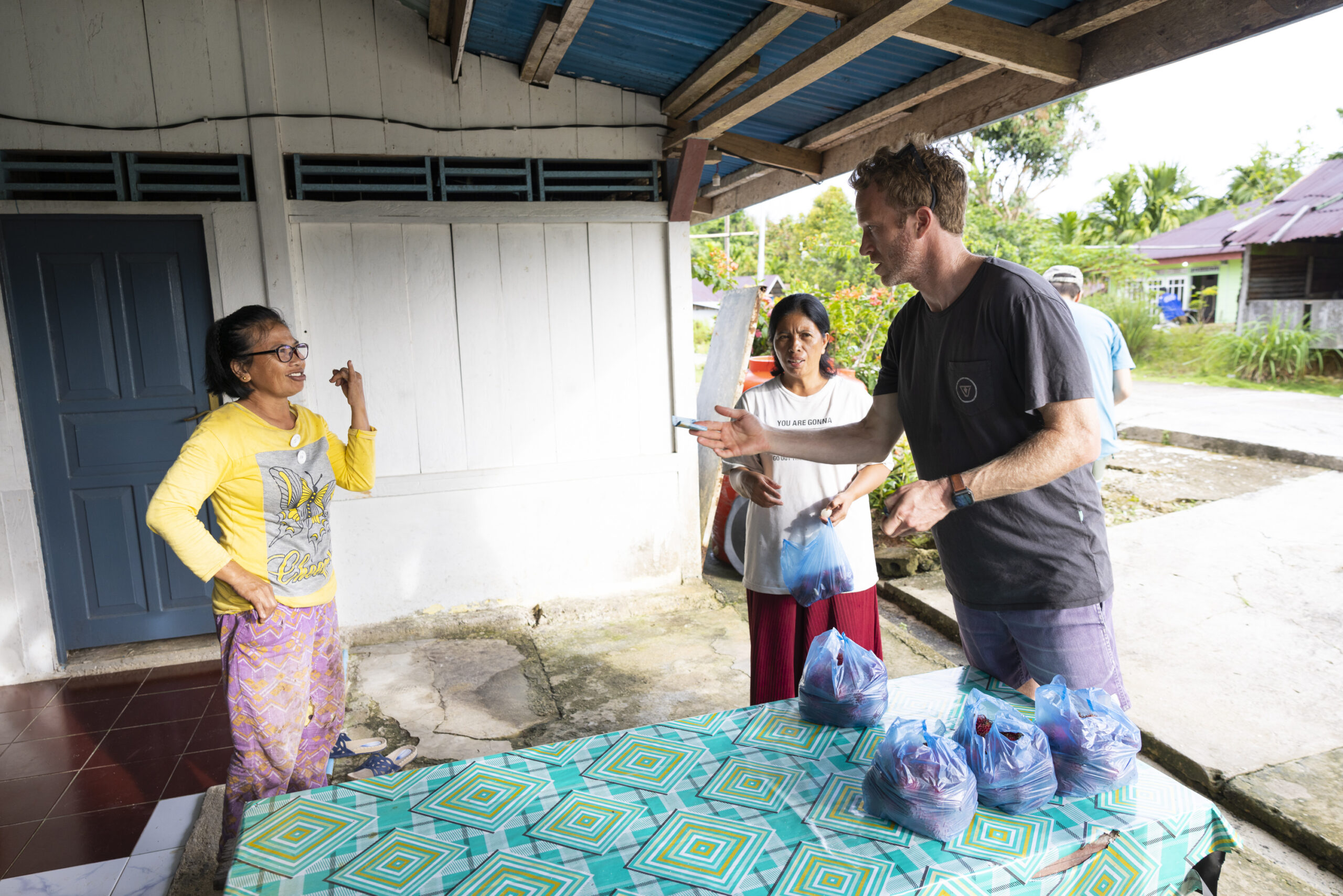
Russ and Grant mowed into them until we later encountered a local villager who managed to convey to us that if you eat too many you’ll get a sore stomach. The look on Russ’s and Grant’s face as the penny dropped was brilliant. That gave us all a good laugh. The Indonesians love to laugh.
Malakopa village used to include buildings down by the water’s edge, but because of historical and the ongoing threat of tsunamis they moved onto the elevated flank of the island.
We say our farewells to a bunch of kids who have shadowed us through the village and head back to the mighty Hog.
The village of Malakopa has left a lasting impression on us all. It seems like such a remote place to etch out an existence and you have to wonder at what the future might hold for them with so many changes happening in the natural world.
